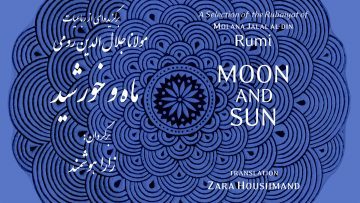Zara Houshmand writes, in the introduction of the book, at her own website:

These rubaiyat, or quatrains, were composed by Jalal al-Din Mohammad Balkhi, known as Rumi, a thirteenth century Muslim theologian and Sufi mystic, and one of the greatest poets of the Persian language. They are a selection from almost two thousand such quatrains that, along with many longer ghazals, comprise the Divan-e Shams. These poems poured out during a period of Rumi’s life when he was intensely affected by his relationship with his spiritual mentor and soulmate, Shams al-Din Tabrizi.
Legend describes Shams—whose name means “sun”—as a wandering dervish, unschooled, an ugly man but charismatic. His own words, only recently made accessible in English, present a much subtler picture. He was an accomplished scholar who hid his learning, an iconoclast, and a fearsome enemy of all hypocrisy. He traveled widely in search of the great spiritual teachers of his time, but kept his distance from the dervish schools that would normally have accommodated such a traveler. He refused to beg, and instead earned a meager living at temporary jobs as he traveled.
His relationship with Rumi also defied categories, blurring the traditional roles of master and disciple. Rumi held the belief that at any one time, a single saint living in the world serves as an axis mundi, a center around which all spiritual energy revolves. He believed that in Shams he had found this saint. It is clear from Shams’s own teachings that he likewise saw Rumi as a saint, though one who had something to learn from him.
More here. And you can pre-order the book here.
